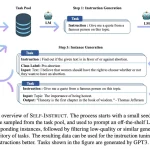Tax deductions allow business owners to deduct expenses from their taxable income and reduce their tax bill, such as furniture purchased for home offices, meals with clients and travel costs.
Many small business owners don’t realize all of the tax breaks available to them and here are some strategies for taking advantage of these deductions for 2023:
1. Insurance
No matter the nature of your business, supplies such as printer paper and Post-it notes may be fully deductible expenses. Insurance premiums you pay to protect the properties and liabilities of your company can also be deducted; freelancers/contract workers whose services you hire may also qualify if their annual earnings surpass $600; however a form MISC-1099 should be issued in such instances.
Meals and entertainment expenses that serve a specific business purpose such as networking, building rapport with clients or training staff can be deducted. You can also claim startup, advertising and retirement plan contributions as tax deductions.
2. Business Investments
An assortment of expenses can be claimed as business investments, including professional fees for lawyers and accountants as well as fees related to advertising your business or bringing in new customers. Other deductible expenses could include startup and organizational costs as well as part of your home rental expenses if your operation takes place at home.
Depreciation deductions are available for many long-term business assets, including furniture, fixtures and machinery. You may also write off part of the cost associated with buying new or used vehicles used primarily for business. Furthermore, under TCJA there is now an expanded tax deduction available to pass-through businesses which allows them to claim 20% of their qualified business income (QBI) provided they meet certain requirements.
3. Equipment
Equipment costs can be expensive for small business owners; however, from a tax perspective that expense may quickly pay for itself.
Businesses typically depreciate equipment over several years through what’s known as depreciation, but under Section 179 they can take almost full advantage of tax benefits to claim almost the full purchase price in one tax year when starting to use qualifying equipment.
Additionally to Section 179, the federal government also offers bonus depreciation to companies that spend over the dollar limit on qualifying equipment – helping you to maximize your deduction and reduce tax liabilities more rapidly.
4. Office Furniture
Furniture purchased specifically for use in your business is tax deductible, such as office chairs, desks and filing cabinets.
However, for this deduction to be eligible, the space must be used exclusively as an office area – guest bedrooms that serve double duty could invalidate this claim.
As well, it must be used regularly and significantly for business engagements; an example would be a medical professional conducting most patient visits at hospitals while occasionally working from home would not qualify as eligible.
expenses can be deducted from your taxable income and assets such as furniture can be depreciated over several years to generate tax savings. Your accountant can help determine whether an item qualifies as either an expense or asset purchase and provide guidance for how best to claim them.
5. Education
Individuals and small businesses, such as sole proprietorships, C-corps and S-corps can claim education expenses as tax deductions; however, there are strict criteria regarding which expenses qualify; tuition and fees only qualify if required by your school; student activity fees or computers don’t count; books and supplies do!
Some work-related education expenses are tax deductible, such as classes to maintain or advance your current profession. A course on new software programs utilized by your design business would qualify. Unfortunately, you cannot deduct tuition for classes on how to start up new lines of business venture.
As long as your student loan debt qualifies, you can claim an itemized deduction for student loan interest.












